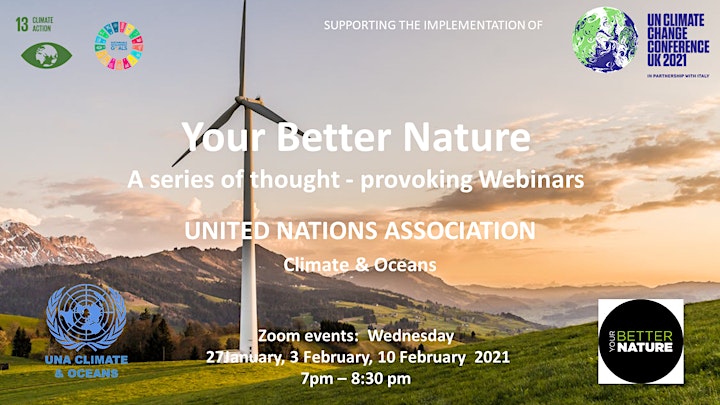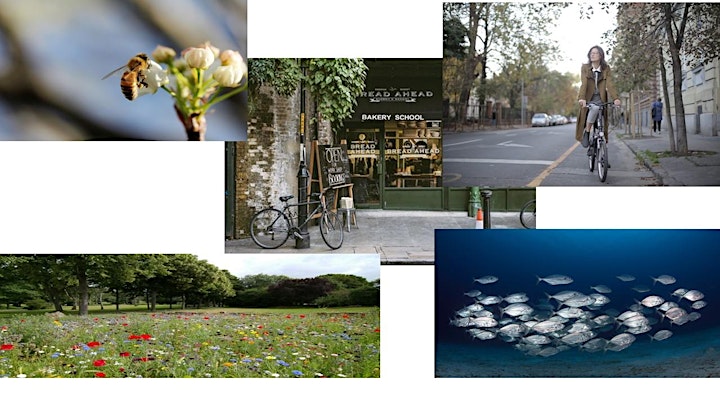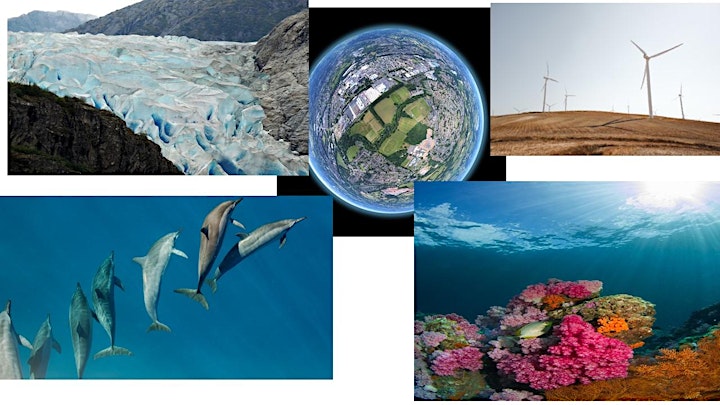
About this Event
Our individual, collective and organisational actions are driven by the stories we tell ourselves, the narratives that underlie and form our priorities, values and behaviours. This series of webinars explores our stories and how the current, dominant human story is driving climate and ecological collapse while putting the future of humanity at risk. We introduce the principles that might form a new collective story where humans and nature are able to flourish together, and where we are far more likely to achieve the SDGs that would transform our world for the better.
Evening online Conversations with:
Dr Tony Whitbread – Ecologist, President of the Sussex Wildlife Trust
Paul Hannam MA FRSA – International Author, Speaker and Environmentalist
Hosted by former BBC presenter Jane Mote
Facilitated by Viviane Doussy
We will have a live audience, so turn your camera on, your Zoom, grab a cuppa or a glass of wine, and join us live!
Webinar 1
The need for a new human story
The current human story is deeply flawed; it is toxic and destructive. This webinar will show how our current trajectory for humanity is unsustainable. The trend for the UN Sustainable Development Goals that relate to our ecological boundaries is accelerating and in the wrong direction. Climate collapse (SDG 13) is taking our environment beyond the boundaries that support civilisation. We are also in the world’s 6th mass extinction, this one caused by human actions and leading to ecosystem collapse which in turn threatens our life support systems (SDGs 14 and 15).
Beyond the environment, we are also suffering from a dysfunctional and corrosive global system characterised by predatory capitalism, gross inequity, systemic racism and extreme nationalism. Many of the SDGs relate to society, equity and poverty. These fail to reach the basic social foundation for much of the population.
Thus, our current human story underpins an approach that is both taking humanity past the ability of the earth to support us and at the same time failing to achieve basic health and well-being for much of the population (Ref SDGs 3 and 6).
Webinar 1 will include a short UN film on humanity and nature

Webinar 2
We are citizens not consumers
The push to consume is driving our relentless pressure on the natural world. Currently we value consumption as the defining characteristic of what it is to be human. This fails us both ecologically and psychologically. This webinar proposes that favouring citizenship over consumption will emphasise values that are more inherently human and drive a better relationship with nature. Contribution, empathy, community and cherishing nature are all characteristics that have blossomed during the COVID lockdown – exposing the presumption that humans are selfish consumers as a myth. We now have a unique opportunity to challenge the story of humans as selfish consumers, and encourage the behavioural changes that will enable us to prevent climate and ecological breakdown
Webinar 2 will include a short UN film on humanity and nature
Webinar 3
Change our relationship with nature from exploitation to regeneration
This webinar will include a message by the UN Secretary General, Antonio Guterres (pre-recorded)
Infinite consumption in a finite world is impossible. Furthermore, environmental damage is so advanced that society must develop a narrative that positively supports regenerative nature (rather than simply damage it less). Regenerating nature must now become the primary aim of human activity, regenerating the life support processes on which we all depend. Our approach to life on land (SDG 15) and life below water (SDG 14) must now move to rebuilding, restoration, and regeneration. Climate action (SDG 13) now needs to reverse the climate breakdown that threatens human civilisation. We require not only urgent zero carbon emissions but the regeneration of ecosystems that actively sequester carbon.
To support this we need the economic models (SDGs 7, 8 and 9), local application (SDGs 11 and 12), global mindset and governance (SDGs 16 and 17) to deliver it.
But underpinning all of this is a narrative for what it means to be human. A society that accepts our better nature will move away from acquisitive growth models as sole measures of success and towards a dashboard of measures, based on the SDGs.
When you cultivate your better nature, you will flourish, and nature will flourish. You will be happier, more fulfilled and live more simply and consciously, and you will be confident that your life is mutually beneficial with nature.

